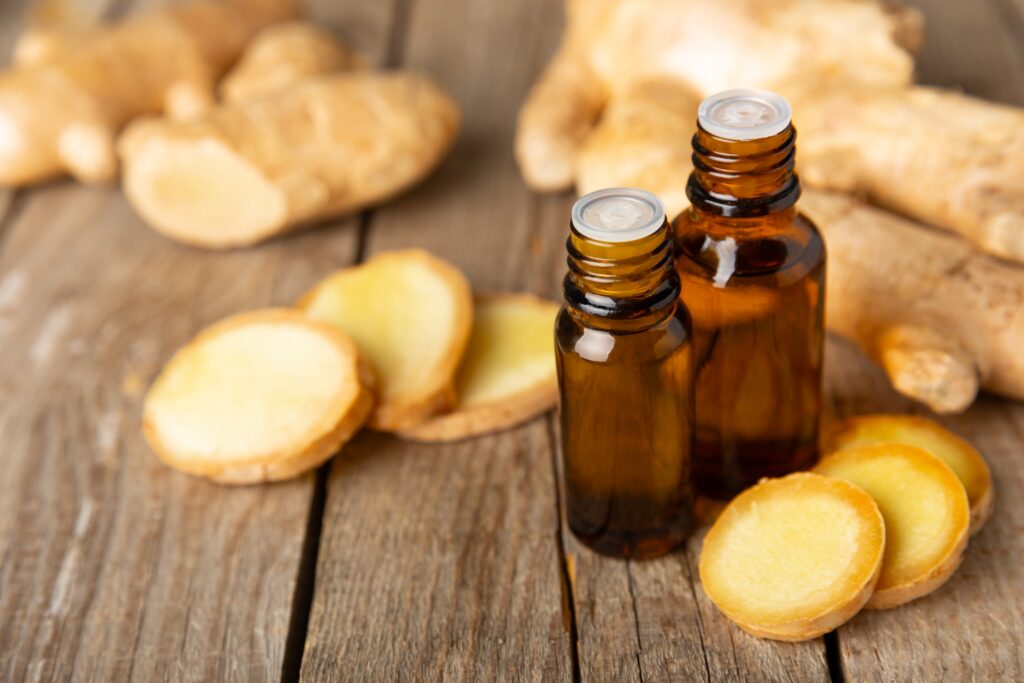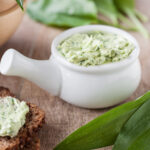Bloating, indigestion, sluggish digestion or gut discomfort? Herbs have been used for centuries across cultures to ease digestion, support gut flora, and reduce inflammation — gently and effectively. This blog post introduces you to 10 of the best herbs for digestion, explaining how they work, how to use them, and when to reach for which one. Whether you’re sipping after dinner or tackling recurring gut issues, these herbal allies help you feel lighter, calmer, and more in tune with your body.
Outline
- Why Gut Health Matters
- 10 Powerful Digestive Herbs
- Peppermint
- Ginger
- Fennel
- Chamomile
- Dandelion Root
- Licorice Root
- Lemon Balm
- Turmeric
- Caraway
- Slippery Elm
- How to Use Digestive Herbs Effectively
- Tea, Tincture, Capsule or Chew?
- When to Use Which Herb (By Symptom)
- Precautions and When to Seek Medical Help
- Final Thoughts: Herbs as Gut Whisperers
Why Gut Health Matters
Your gut isn’t just about food — it’s about everything:
- Immune function
- Mood and mental clarity
- Nutrient absorption
- Hormonal balance
An imbalanced gut can leave you feeling tired, foggy, inflamed or anxious. The good news? Herbs can help restore flow, reduce discomfort, and support long-term digestive health — naturally.

10 Powerful Digestive Herbs
Peppermint
Best for: Bloating, gas, IBS
How it works: Relaxes the smooth muscles of the gut and relieves spasms
- Use as a tea after meals
- Effective for cramps, trapped wind, or discomfort
- Avoid if you have acid reflux (it can relax the LES too much)
Ginger
Best for: Nausea, sluggish digestion, bloating
How it works: Stimulates digestion and gastric emptying, anti-inflammatory
- Use fresh ginger tea or chew a slice before meals
- Excellent for motion sickness, morning sickness, and indigestion
Fennel
Best for: Gas, bloating, post-meal discomfort
How it works: Carminative – helps dispel gas and ease cramping
- Chew fennel seeds after meals (a common practice in India)
- Also great as a tea or digestive tincture
Chamomile
Best for: Indigestion, stress-related digestive issues
How it works: Anti-inflammatory and antispasmodic; calms the nervous system
- Ideal for stressful eaters or gut-brain tension
- Drink a cup in the evening or after a heavy meal
Dandelion Root
Best for: Sluggish digestion, liver support, constipation
How it works: Bitter herb that stimulates bile production
- Take as a tea or tincture before meals
- Also supports liver detox and overall digestion
Licorice Root (Deglycyrrhizinated/DGL)
Best for: Acid reflux, heartburn, stomach lining repair
How it works: Soothes and protects the gut lining
- Use DGL (deglycyrrhizinated licorice) in chewable tablets
- Great for gastritis, ulcers, or “burny belly”
Lemon Balm
Best for: Nervous stomach, bloating, gut-related anxiety
How it works: Mild sedative and carminative
- Use as a fresh tea or in herbal blends
- Eases the gut-brain stress connection
Turmeric
Best for: Inflammation, gut pain, leaky gut
How it works: Powerful anti-inflammatory and antioxidant
- Combine with black pepper for better absorption
- Use in golden milk, capsules or cooking
Caraway
Best for: Gas, bloating, IBS-type symptoms
How it works: Antispasmodic and helps reduce fermentation in the gut
- Combine with fennel and peppermint for a digestive powerhouse blend
- Popular in Central European digestive teas
10. Slippery Elm
Best for: Mucosal healing, ulcers, sensitive stomach
How it works: Forms a soothing gel to coat the stomach lining
- Take as powder mixed with water or in lozenge form
- Great for IBD, GERD, and gut repair protocols
How to Use Digestive Herbs Effectively
| Form | Best For |
|---|---|
| Tea | Gentle support, post-meal calm |
| Tincture | Fast-acting and potent, especially for bitters |
| Capsules | Long-term support, travel-friendly |
| Chews/Seeds | Great for fennel, licorice, ginger |
Use bitters (like dandelion or ginger) before meals. Use calming herbs (like peppermint or chamomile) after meals.
Tea, Tincture, Capsule or Chew?
- Tea: Ideal for daily rituals and mild symptoms
- Tinctures: Fast-absorbing and stronger doses
- Capsules: Great for consistency or higher potency
- Chews: Convenient and effective for on-the-go relief
When to Use Which Herb (By Symptom)
| Symptom | Herbs to Try |
|---|---|
| Bloating & Gas | Fennel, Peppermint, Caraway, Chamomile |
| Nausea | Ginger, Lemon Balm, Chamomile |
| Acid Reflux / Heartburn | DGL Licorice, Slippery Elm, Chamomile |
| Sluggish Digestion | Dandelion Root, Ginger, Turmeric |
| IBS or Spasms | Peppermint, Caraway, Chamomile |
| Nervous Stomach | Lemon Balm, Chamomile, Ashwagandha (for chronic) |
Precautions and When to Seek Medical Help
- If symptoms are severe or persistent, see a healthcare provider
- Some herbs interact with medications — check with a doctor or herbalist
- Avoid licorice root if you have high blood pressure (unless using DGL)
- Use with caution in pregnancy or while breastfeeding
Final Thoughts: Herbs as Gut Whisperers
Your digestion is a conversation between body and brain — and herbs speak both languages fluently. Whether calming a nervous belly, healing the lining, or moving things along, these gentle plant allies remind us that healing doesn’t have to be harsh.
So steep, sip, chew or blend — and let your gut say thank you.








